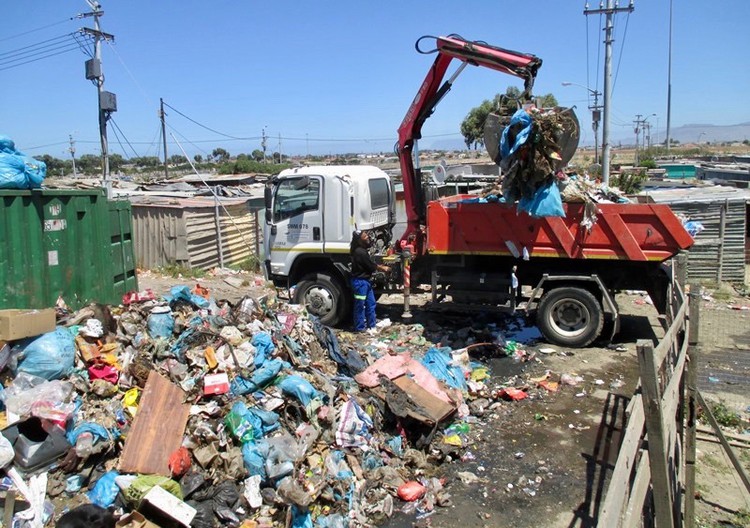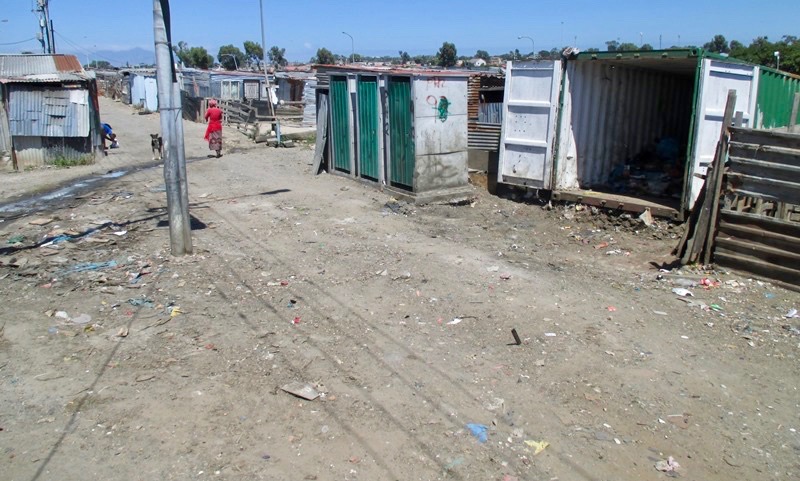
City trucks clear the mountain of rubbish that has collected at three sites in Europe informal settlement in Nyanga. Photo: Mandla Mnyakama
22 February 2017
Residents from Europe Informal Settlement in Nyanga are relieved after the removal of large rubbish mounds. The mounds had been uncollected since December.
The problem occurred after some residents refused to allow the City of Cape Town to use its Expanded Public Works Programme database for the recruitment of community contract cleaners. There were allegations of corruption and residents wanted to randomly select 16 cleaners at a community meeting using the umnqwazi method, in which names are drawn from a hat by a small child, instead of the City’s process.
After a marathon six-hour meeting in which ward 40 Councillor Bongani Ngcombolo and municipal officials tried to convince residents about the fairness of the City’s system, residents agreed to use the City database.
By the end of last week, the uncollected refuse from the three local dumping sites was cleared by several municipal trucks.
Resident Thozama Hinana said, “We had to show support and co-operate with Councillor Ngcombolo because we want development in our community … We then beat those who were against the database with a majority vote … It was really significant because the countless protests we embark on sometimes take us nowhere.”
Thumeka Siwaphi, whose two-year-old boy, Lithemba, was bitten by rats says the rodents were attracted by the rubbish. “We feel much relieved that the rubbish has been cleared off from our area,” she said. She appealed to the municipality to consistently maintain its refuse removal programme.
Resident Patricia Dayimani also appealed to the municipality to improve the supply of refuse bags to the area to enable people to collect their household trash.
Councillor Siyabulela Mamkeli, the Mayoral Committee Member for Area Central, confirmed that the community had given the go-ahead following negotiations with Councillor Ngcombolo and the Solid Waste Management Department.
He added that recruitment has been postponed until Wednesday 22 February to allow the community extra time to submit their job seekers’ forms. Once their information had been captured, 16 candidates would be selected at random.
